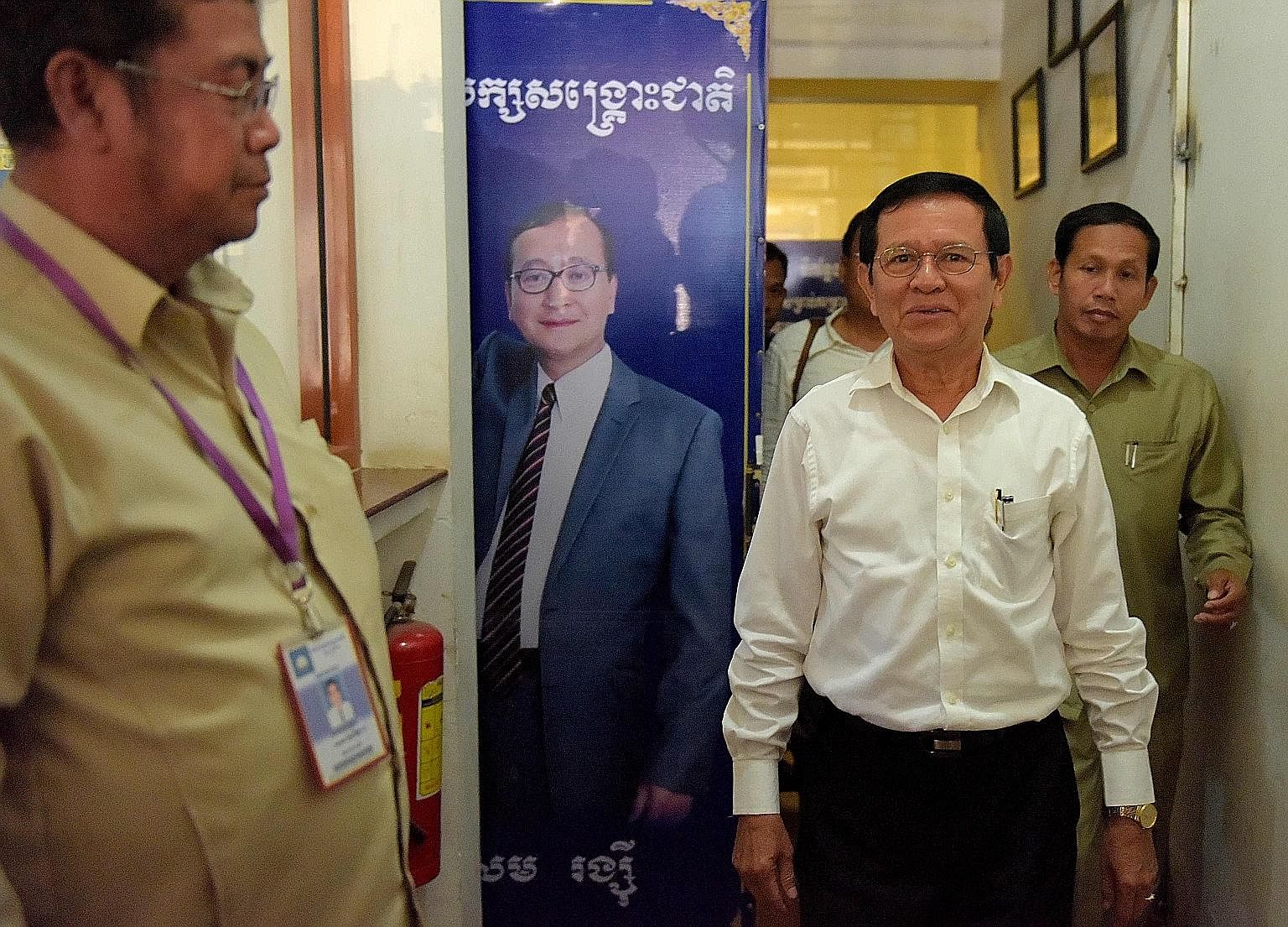Cambodian legislators will vote on Monday on a legal amendment that gives the authorities broad powers to dissolve opposition parties. Such is its threat that opposition leader Sam Rainsy, who has been convicted of defamation, has resigned "for the sake of the party", raising questions about the future of his Cambodia National Rescue Party (CNRP) just a year before the country's next general election.
CNRP was a marriage of two opposition parties that rode a wave of discontent in 2013 to mount the biggest challenge to Prime Minister Hun Sen's Cambodian People's Party in two decades. In the general election that year, CPP's majority shrank from 90 out of 123 seats to 68. CNRP won the rest.
But the political winds in the kingdom have since turned.
The latest hazard in the opposition's path is the impending change in the Law on Political Parties mooted by Mr Hun Sen earlier this year. It would allow for political parties to be dissolved over crimes committed by their leaders, as well as ban those involved from politics for up to five years.
Pending a court decision over the alleged violations, the Interior Ministry can suspend any party for an unspecified period of time.
Critics said the changes, which are widely expected to be passed, are to intimidate the opposition, as Mr Sam Rainsy has been living in France to avoid a two-year jail term over a defamation conviction. Another CNRP stalwart Kem Sokha was holed up at the party's Phnom Penh headquarters for months last year to avoid arrest over what many say was a spurious court case related to his alleged affair. He emerged last December after a pardon from King Norodom Sihamoni made at Mr Hun Sen's request, an act couched as a political compromise.
Future Forum think-tank founder Ou Virak called the legal amendment a "tool of last resort" that the ruling party can use. But government spokesman Phay Siphan told The Straits Times: "This is to fight against impunity so that a criminal cannot become a chairperson of a political party."

Those hoping that the events of 2013 would spark deep change in the personality-driven, patronage-style of government have been disappointed.
Cambodia, while raising the monthly minimum wage in the important garment sector from US$140 to US$153 (from S$198 to S$217) last year and improving tax collection, remains the worst-faring Asean country in terms of graft.
Meanwhile, the opposition needs to do more to build confidence that it can run the country, said Mr Ou Virak.
With the looming legal amendment, the opposition's space to manoeuvre will further shrink. Political observer Noan Sereiboth said: "They will probably be careful in their activities, and continue their dialogue with the ruling party."
